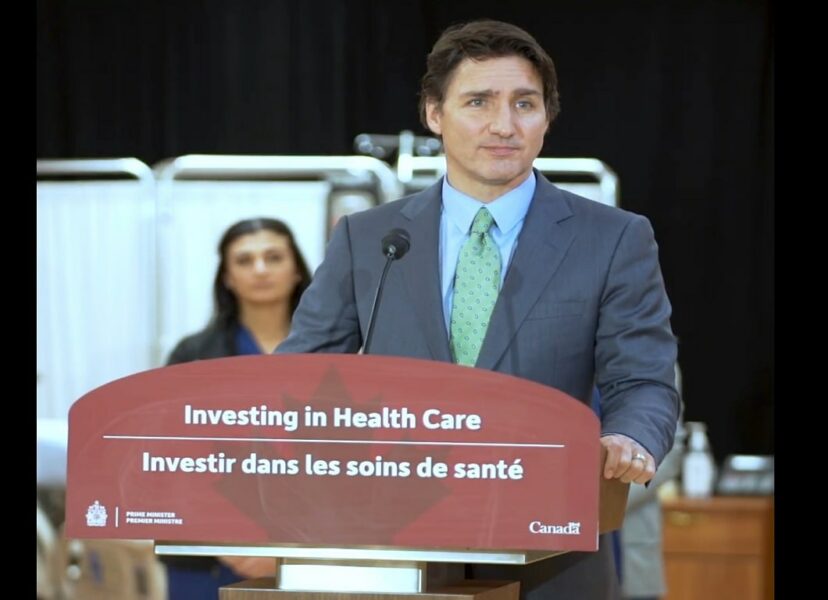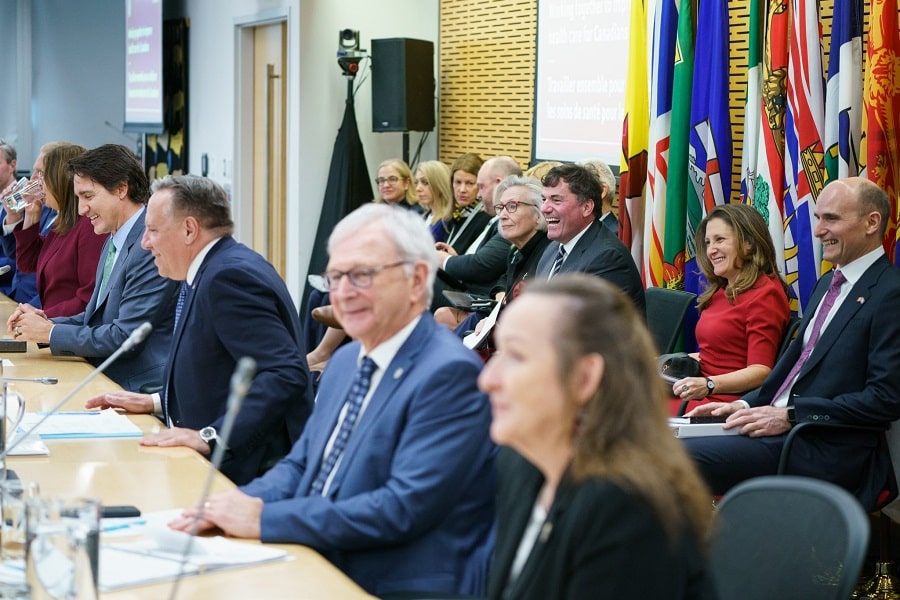Premiers Say Federal Government’s $196.1 Billion To Improve Healthcare Is Disappointing
- TDS News
- Breaking News
- February 8, 2023

Healthcare is a critical aspect of everyday life for Canadians, and ensuring that all citizens have access to equitable medical care based on their needs and not their ability to pay is a crucial aspect of the Canada Health Act. In recognition of this fact, Prime Minister Justin Trudeau, along with the premiers of Canada’s provinces and territories, concluded their working meeting aimed at improving the country’s healthcare system.
At the meeting, the federal government announced a significant increase in health funding to the provinces and territories, with a total of $196.1 billion being made available over the next ten years. This includes $46.2 billion in new funding, which will be allocated in a number of different ways. However, the premiers say it is still short of the amount they wanted. Money can not fix all of the provincial government’s problems, and premier accountability must be front and center.
An immediate, unconditional $2 billion Canada Health Transfer (CHT) top-up will be provided to address immediate pressures on the healthcare system, including long wait times for surgeries and crowded emergency rooms and pediatric hospitals. This funding builds on previous CHT top-ups that total $6.5 billion, which were provided throughout the pandemic.
In addition to this immediate funding, the federal government will provide a 5 per cent CHT guarantee for the next five years. This is projected to provide an additional $17.3 billion in new support over ten years. A total of $1.7 billion will also be provided over five years to support hourly wage increases for personal support workers and related professions as the federal, provincial, and territorial governments work together to support recruitment and retention in these fields.
$25 billion over ten years to advance shared health priorities through tailored bilateral agreements that will support the needs of people in each province and territory in four areas of shared priority:
- family health services;
- health workers and backlogs;
- mental health and substance use; and
- a modernized health system.

The Territorial Health Investment Fund will receive $150 million over five years to help offset the costs of delivering healthcare in Canada’s territories, where medical travel can be a significant burden. This funding will be provided in recognition of the unique challenges faced by the people of these regions.
In addition to these measures, the federal government will work with Indigenous partners to provide $2 billion over ten years to support Indigenous health priorities. This funding will address the unique challenges Indigenous Peoples face in accessing quality, culturally safe healthcare services.
While the federal government has attached some bilateral agreements to funding with respect to the provincial population, the increased funding will undoubtedly help improve healthcare access and outcomes for Canadians across the country. However, the premiers have indicated that they feel the funding offered needs to be increased. In a tweet, Manitoba Premier Heather Stefanson said “The proposal @JustinTrudeau brought forward today is unfortunately disappointing. Context matters – his offer represents just 2% of our healthcare budget. All Premiers will take time to review how the Fed proposal impacts healthcare in Manitoba and for all Canadians.”
Despite this criticism, it is important to recognize that any increase in healthcare funding will help to improve access to medical care for Canadians and their families. Therefore, all parties must work together to build on progress and prioritize the health and wellbeing of all citizens.
The premiers asked for help and received an olive branch, and now they need to take accountability for how they run their government. The blame can not always be solely at the feet of the federal government.
The increased funding provided by the federal government will help address some of the most pressing challenges facing the healthcare system today and will support the development of more effective and equitable healthcare services for all Canadians. While there is still much work to be done, this investment represents a significant step forward in ensuring that all citizens have access to the care they need when they need it, regardless of their ability to pay.








